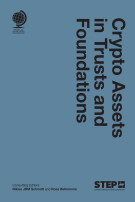Sustaining family fortunes
20 December 2021

Author bio coming soon
Russell Prior discusses how to sustain family fortunes with good habits, good intentions and good actions.
Sustaining a family fortune requires good habits, good intentions and good actions.
With a recent family wealth report [1] stating that only 1 in 10 ultra-high-net-worth families have a formalised governing body, the topic of family governance continues to be a significant source of interest for the very wealthy.
The statistic that only 1 in 10 UHNW families has established a formal family governance approach seems to beg the question, what is holding them back.
From the conversations that I’ve had with many very wealthy families I put this down to two main factors – firstly, not having come to terms with the long-term implications of their surplus wealth and secondly they haven’t created a plan to deal with it. To be clear, it’s very hard to do the second without having tackled the first. However, successfully tackling the first doesn’t mean the second is dealt with.
Coming to terms with the long-term implications of surplus wealth
Understanding that surplus wealth will survive beyond you and your lifetime is what makes determining its purpose so important. It’s also what makes it so vital to communicate with and prepare those whose lives, beyond you, that it will impact – and impact them it will.
The following are some of the thoughts I hear being expressed:
- We’re doing ok by not talking about it, so why change
- Secrecy about the level of wealth, driven by a fear of the harm it may create
- Passing on nothing or very little to the next generation, as a way of encouraging them to make their own way
- Establishing structures that create significant control and conditionality on beneficiaries, primarily as a way of protecting the wealth
- Struggling to navigate between fairness and meritocracy in the way children are treated
- Encouraging and rewarding virtue, or even punishing waywardness
Borrowing Newton’s 3rd Law (that every action has an equal and opposite reaction) the absence of a clearly articulated purpose for surplus wealth is almost certainly going to be accompanied by an absence of communication with and preparation of the beneficiaries. What is perhaps less well understood is that, in the absence of a clearly articulated approach, the surplus wealth is at risk of suffering entropy.
Creating a plan to deal with surplus wealth
That a breakdown in communication and trust, and a failure to prepare the next generation are two of the main reasons behind the failure to pass on wealth successfully[2] between the generations shouldn’t be a surprise, all the more so when there’s no clear purpose for the surplus wealth to communicate or for which to prepare the next generation.
Articulating a very clear purpose for surplus wealth is not just about creating a mission or vision statement, it needs to be backed up by belief and personal behaviour, including:
- Creating a narrative around the wealth purpose supported by genuine actions and commitments
- Building an ethos of responsibility
- Recognising the need for change and making a commitment to it
Whatever wealth purpose is determined the impact this will have on the people it affects needs to be analysed and understood by:
- Identifying all of the stakeholders in the surplus family wealth
- Agreeing how they are going to be involved
- Creating an atmosphere of trust that will enable constructive communication
- Identifying the core and common values
- Determining how succession will be handled
- Balancing the roles and interests of family members
And finally a plan and process can be implemented, supported by:
- Activities that support family engagement
- Family member mentoring, training and development programmes
- Building the rules for decision-making and ways of communicating
- Creating a governance framework and subsequently managing it
It’s my experience that it’s one thing for families to work on defining a shared purpose, but quite another for the senior generation to recognise a need and therefore show willingness to get organised.
The absence of formal governance arrangements is rarely missed when things are going well. In stressful or difficult times, or should governance not be in place by the time the senior generation passes, the effect of the absence of good governance arrangements is magnified many times over.
Russell Prior is the author of Family Governance and Surplus Wealth: Sustaining Family Fortunes, published by Globe Law and Business in June 2021 (https://www.globelawandbusiness.com/books/family-governance-and-surplus-wealth-sustaining-family-fortunes). He heads the Family Office Advisory and Family Governance practice for HSBC Private Banking across EMEA.
This article is intended as a general guide only and is the opinion of the author. The information and opinions do not provide legal or tax advice.
*[1] Julius Baer Family Barometer 2021
*[2] Roy Williams and Vic Preisser. Preparing Heirs: Five Steps to a Successful Transition of Family Wealth and Values. 2003













Any comments - send us an email